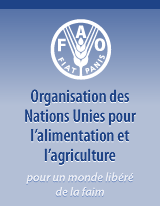Building nutrition-sensitive wild product value chains in Uganda
 FAO, in partnership with the World Agroforestry Centre (ICRAF) Uganda office, began working in the West-Nile sub-region, Uganda in November 2018 to support the development of nutrition-sensitive value chains based on non-wood forest products (NWFPs). Increasing evidence suggests that these “non-wood” resources make important contributions to the resilience of food systems. Yet, they are often overlooked in rural development strategies, nutrition and resilience interventions and in land-use management and planning. The key aim of this project was to assess and begin to improve key NWFP value chains for the long-term aim of enhancing food and nutrition security, household incomes and biodiversity in the West Nile sub-region.
FAO, in partnership with the World Agroforestry Centre (ICRAF) Uganda office, began working in the West-Nile sub-region, Uganda in November 2018 to support the development of nutrition-sensitive value chains based on non-wood forest products (NWFPs). Increasing evidence suggests that these “non-wood” resources make important contributions to the resilience of food systems. Yet, they are often overlooked in rural development strategies, nutrition and resilience interventions and in land-use management and planning. The key aim of this project was to assess and begin to improve key NWFP value chains for the long-term aim of enhancing food and nutrition security, household incomes and biodiversity in the West Nile sub-region.
Following a rapid assessment of non-wood forest products in the region, honey and beeswax, shea butter (Vitellaria paradoxa), balanites oil (Balanites aegyptiaca) and the edible grasshopper Ruspolia differens, known in Uganda as “nsenene” or “ese,” were identified as key products with nutrition, health and/or income potential. Their individual value chains and nutritional/health benefits were subsequently analyzed. The value chain analyses revealed that utilization of these key NWFPs was below their maximum potential. Discussions with harvesters revealed general lack of skills in product harvesting, handling and in value addition, mostly related to insufficient knowledge on quality and hygiene standards.
Three training workshops with small producers on value-addition, marketing and standards for certification and sustainable collection followed the assessment, taking place in November 2019 and reaching approximately 150 collectors. Participatory identification of the NWFPs suitable for domestication, namely Vitellaria paradoxa (shea butter tree), Balanites aegytiaca (desert date) and Tamarindud indica (Tamarind) was carried out in parallel, with the long term aim of alleviating pressure on wild populations.
In addition to enhancing access to nutritious and healthy NWFPs, the project sought to raise awareness among different sectors (forestry, health, education) about the important contribution NWFPs can make to building resilience directly by adding vital nutrients and diversity to diets, and indirectly as the basis of sustainable livelihoods. With adequate training and integration of NWFPs in forest management, land-use planning and nutrition and livelihood interventions, NWFPs have the potential to make a greater contribution to nutrition and food security, particularly dietary diversity and quality, as well as increased household income and the conservation of biodiversity. Findings of the project were presented at a multi-stakeholder workshop in early 2020. Final workshop presentations can be accessed here:
- Non-Wood Forest Products (NWFP) a contribution to sustainable development - FAO’s work on NWFP – an overview
- Opportunities for building nutrition sensitive NWFPs value chains in Uganda
- Remarks by FAO Representative in Uganda
- Efforts towards adding value to Ruspolia differens (Nseenene) in Uganda
- Nutritional Composition and Value Addition to Selected NWFPs in Uganda
Contact: [email protected]
